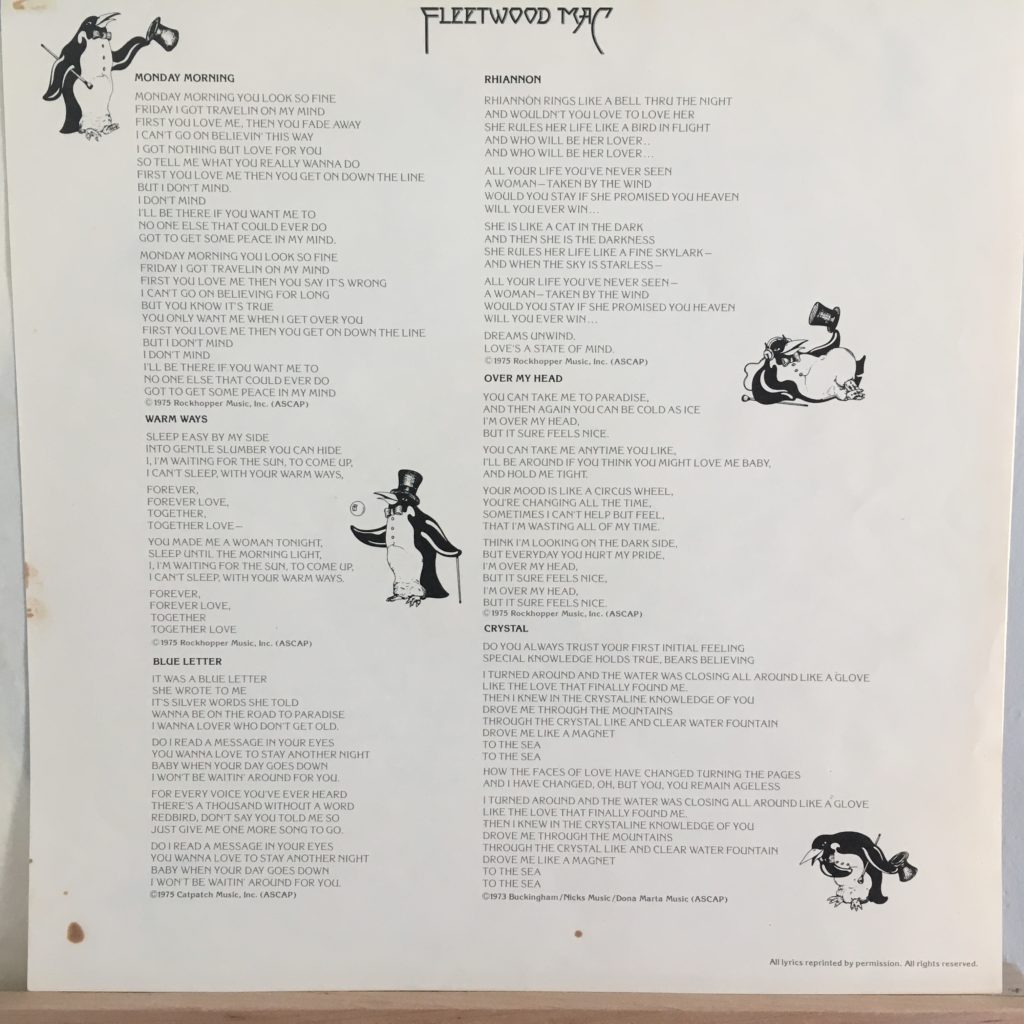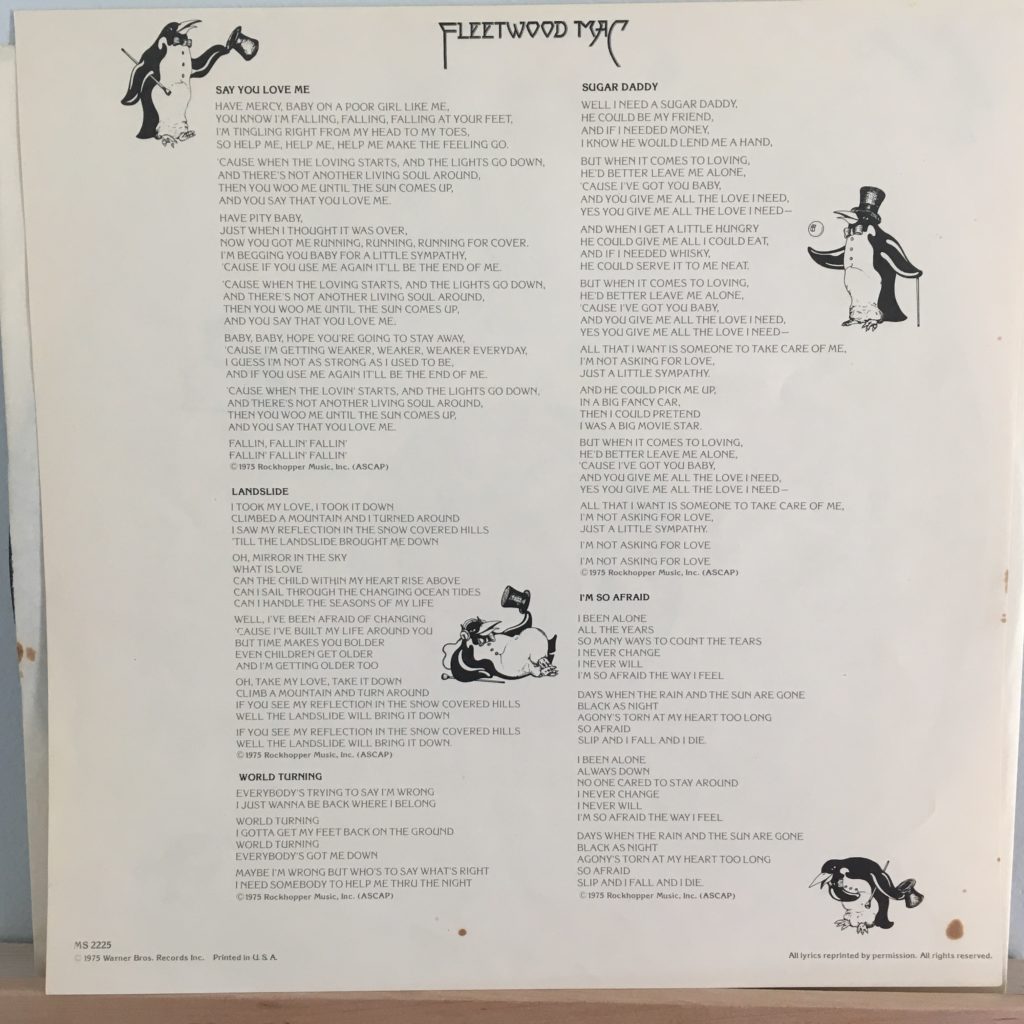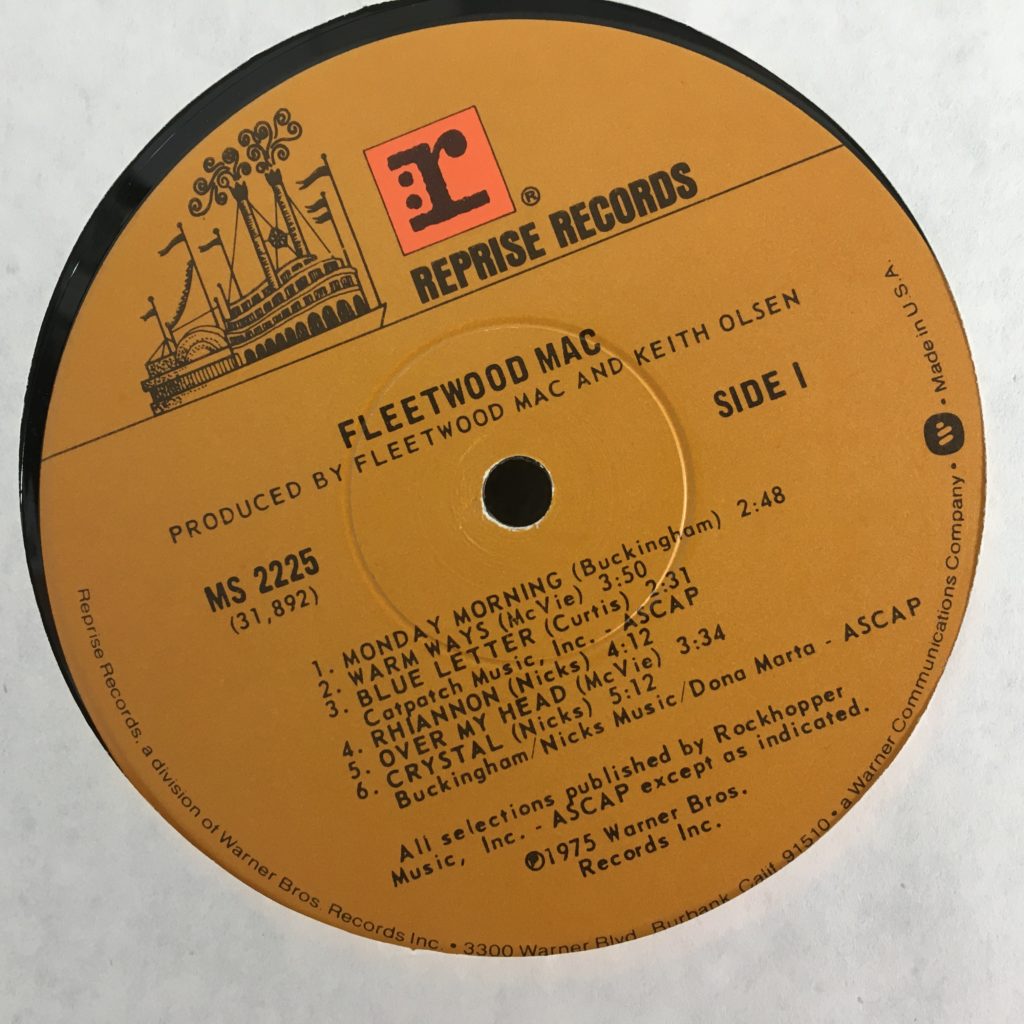This self-titled release from 1975 wasn’t their only self-titled release: their first album, from 1968, also carried only the band’s name. It’s a bit of a surprising decision — while they had been plodding along for five or six years, they were hardly unknown. But this is the one that announced the new Fleetwood Mac lineup, adding Lindsey Buckingham and Stevie Nicks to the remaining combo of Mick Fleetwood, John McVie, and Christine McVie.
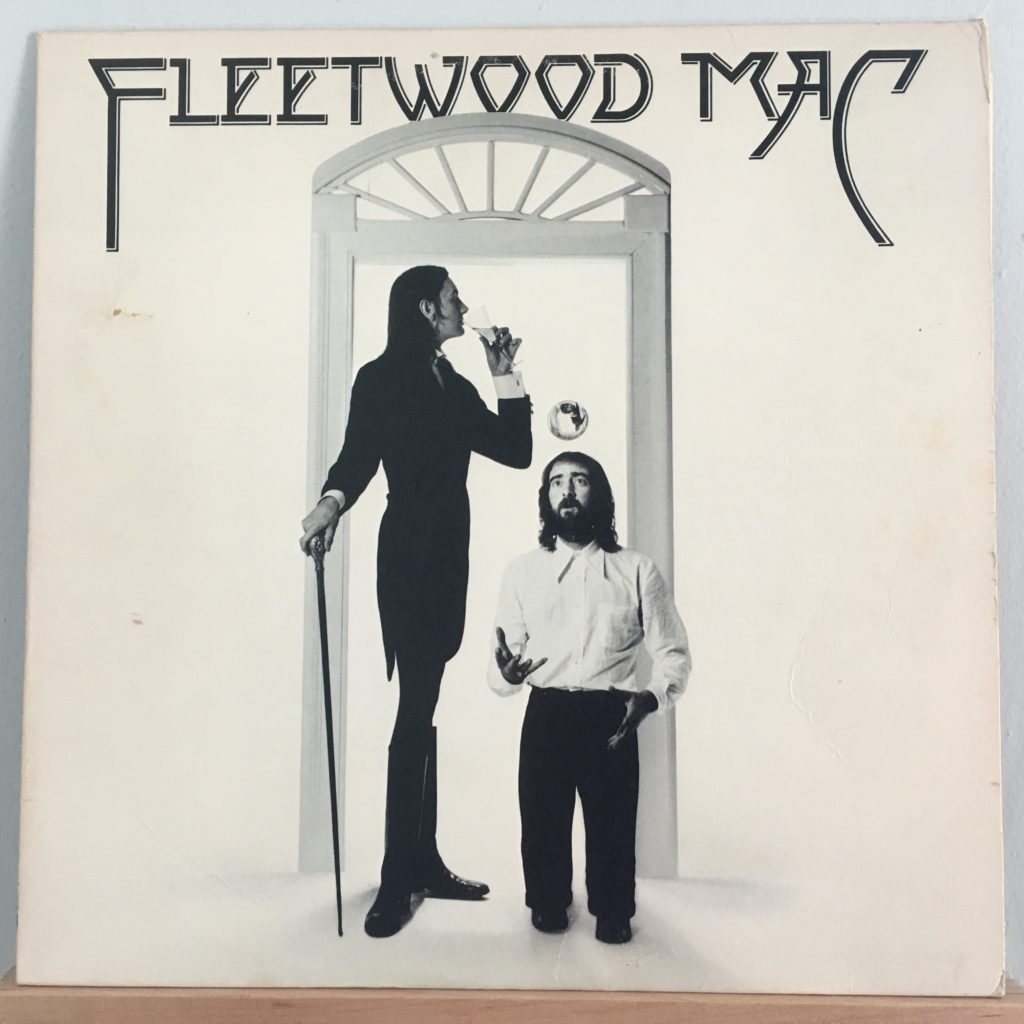
That led me to ask my local music nerd friends what other groups or singers had had the nerve to release multiple self-titled albums (just the name, not “The Genius of Etc.”), and got some great responses from crowdsourcing that I would not have uncovered on my own. Diana Ross was one. There was McCartney and McCartney II, which was on the fringe. There was Seal, who released two self-titled records before moving into an inconsistent numbering scheme. We decided to exclude Barbra Streisand, who used her name in some way on nearly ALL her album titles. The other example in my collection was Joe Cocker, who put out “Joe Cocker!” in 1969 but had lost the exclamation point for 1972’s “Joe Cocker.” And someone pointed out that Billy Burnette had three self-titled releases, in 1972, 1979 and 1980. So, wow.
I’m gonna go ahead and admit that I didn’t get this record until after I got Rumours, so sometime in 1977. There was a time, I swear, when people called this “The White Album,” presumably for its cream-colored cover and to avoid confusion about its title. It was easier to say “Do you have Fleetwood Mac’s white album?” than to say “Do you have the Fleetwood Mac album that isn’t ‘Rumours’ that is just titled ‘Fleetwood Mac?'”
The 10th lineup of Fleetwood Mac hit it big, though not as big as they would, with this album, which peaked at 58 on the US album charts. It has “Monday Morning,” “Rhiannon,” “Over My Head,” “Say You Love Me,” and “Landslide,” which seemed to grow and grow and grow in stature over the years. That’s a lot of hits out of a single album, and it really put Fleetwood Mac on the map once and for all. But I think a lot of people, like me, experienced it only because of its successor, “Rumours.” “Rumours” was so huge, and we hungered for more, so we went back to “Fleetwood Mac.” If we hungered for more after that and bought “Heroes Are Hard to Find” or “Mystery to Me”-well, if you’re like me, that would have ended the exploration. To me, the Bob Welch years were an abomination, and those tracks seem to overshadow any of Christine’s songwriting contributions.
This has the distinction of being one of the few records that I owned as a teenager that I still own. Despite the time that I came to love it, listening to it doesn’t feel like nostalgia in any way. Despite having heard some of these songs thousands and thousands of times, they continue to sound fresh. Despite the hundreds of covers of “Landslide,” I still like “Landslide” — and it’s a long way from my favorite song on this album. (These days that’s a dead heat between “World Turning” and “Over My Head,” with “Monday Morning” remaining very close behind — what a way to open an album.)
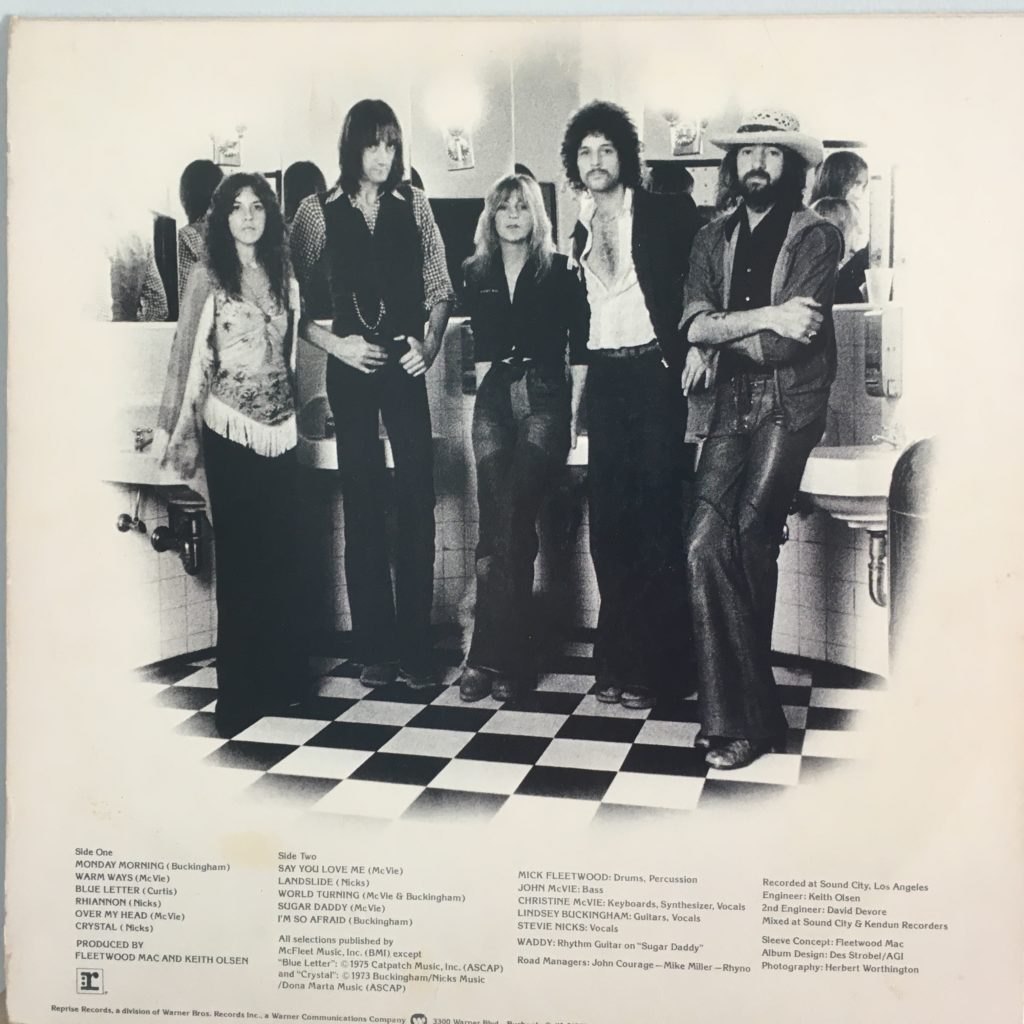
But because I came to know it around the same time as we were all coming to know “Rumours,” I think all my high school associations with this album are pretty much the same as for “Rumours.” I don’t know why, but sometimes when I think of this album being called “the white album,” I flash on a memory of my high school’s second cafeteria, the smaller cafeteria where I usually had lunch in my junior year. Was that where I first heard it referred to that way? Or was there just an intense conversation about the album there? Impossible to say at this remove. But it’s definitely one of those everlasting associations.
Many years back, I wrote that I had never gotten this album on CD because half of it bored me. I’d love to go back and ask myself, “which half, son?” I suspect I wasn’t wowed by “Warm Ways,” “Sugar Daddy,” or “Blue Letter,” and I think at the time I didn’t appreciate “World Turning.” There’s an important lesson there because now, the rough sound of “World Turning” is one of my favorite sounds from this album. An album that reveals itself in new ways at different moments in our lives is a true classic.
